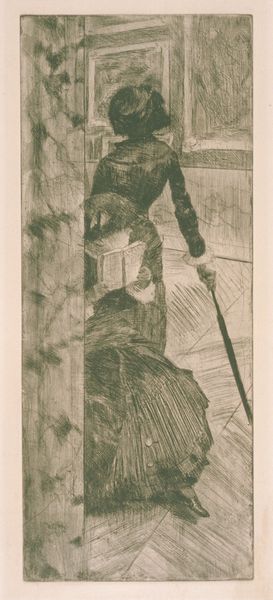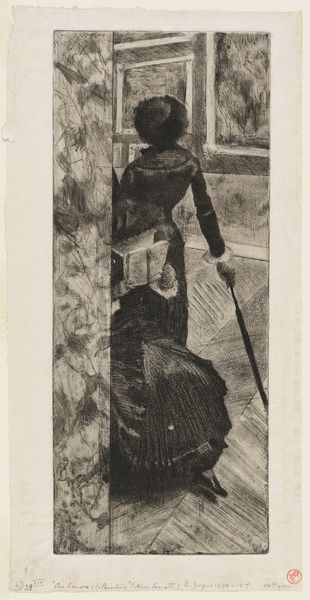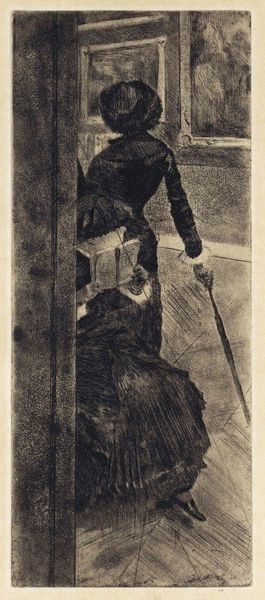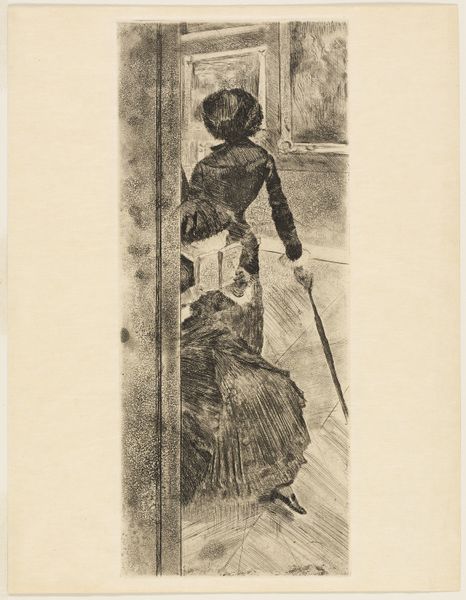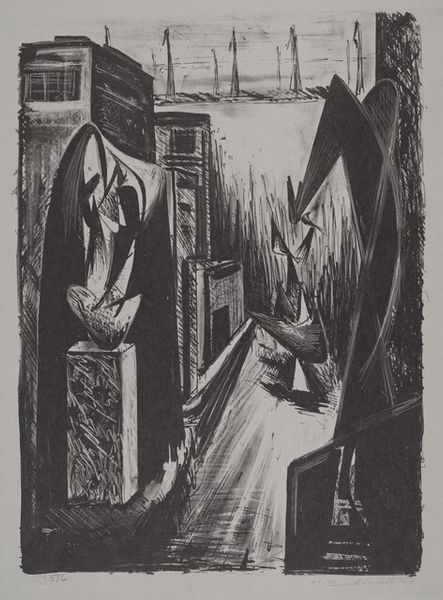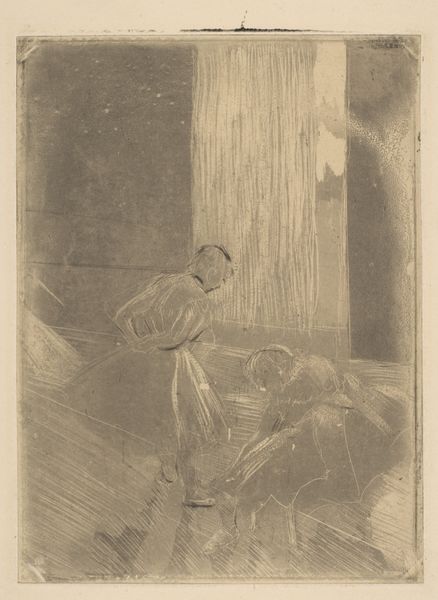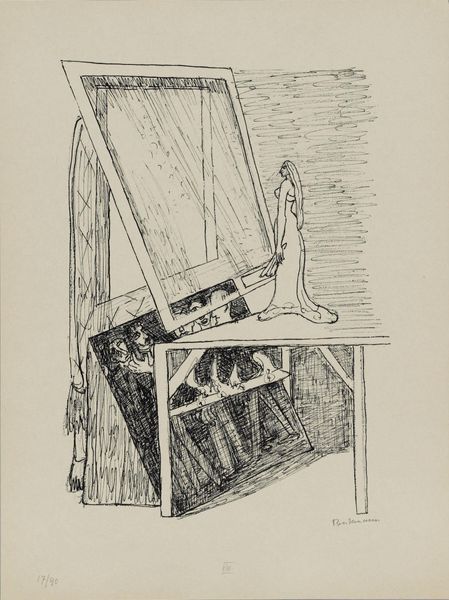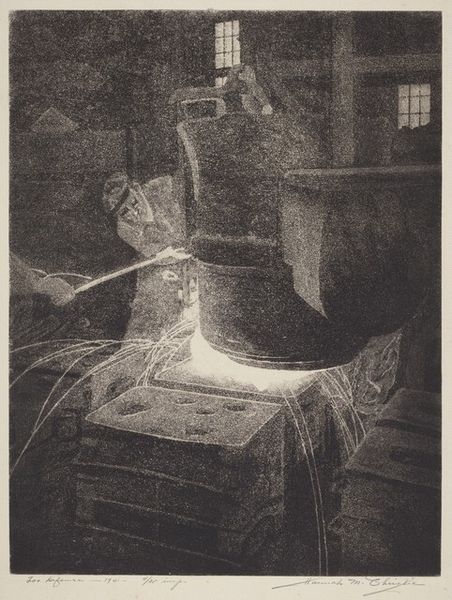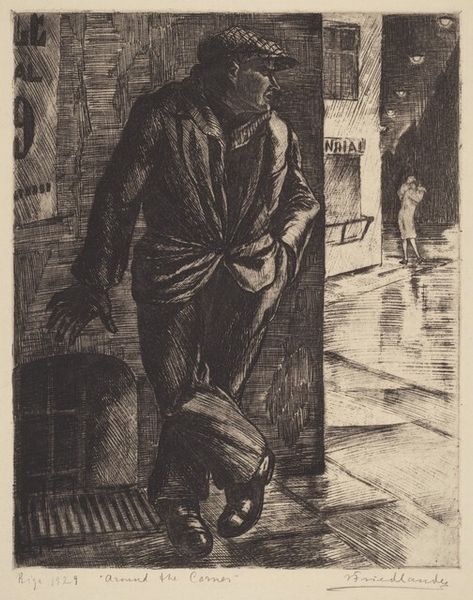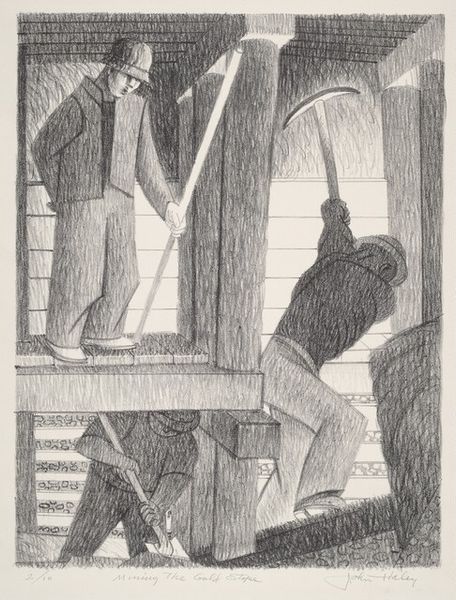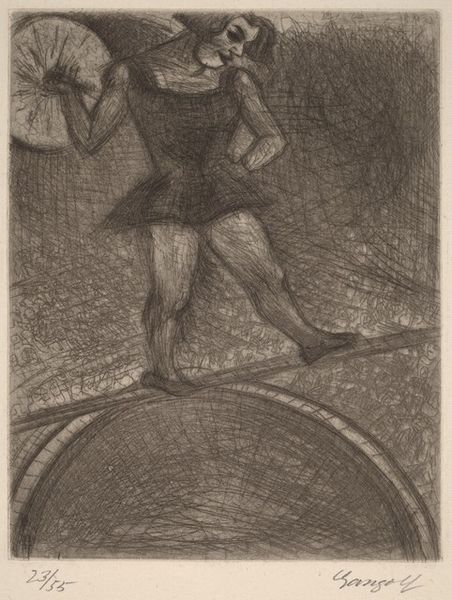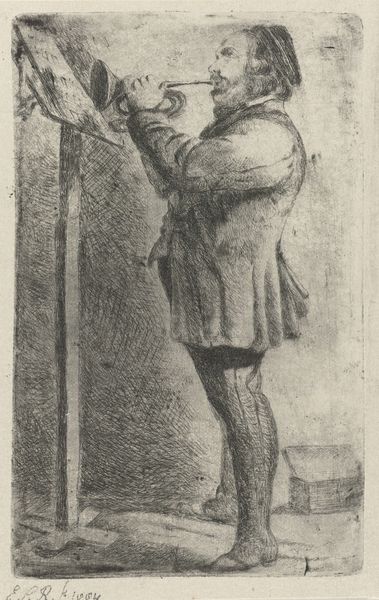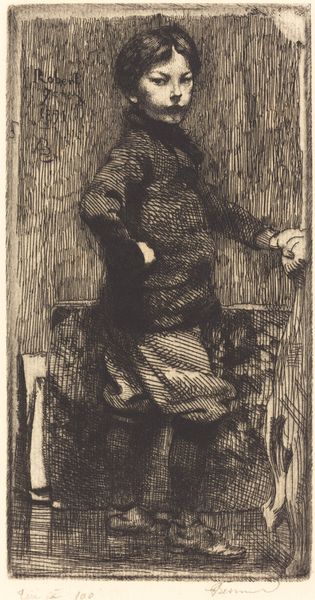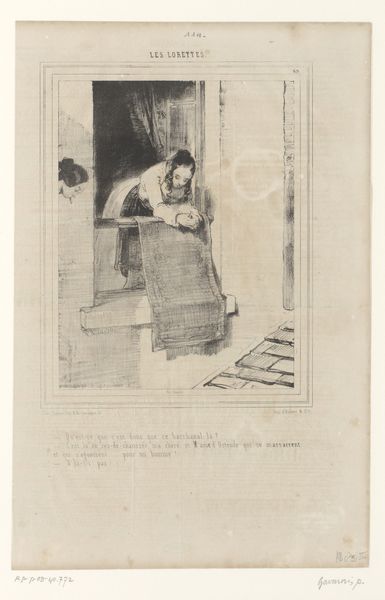
print, etching
#
portrait
# print
#
impressionism
#
etching
#
figuration
#
genre-painting
Dimensions: plate: 30.2 x 12.5 cm (11 7/8 x 4 15/16 in.) sheet: 36.2 x 22.3 cm (14 1/4 x 8 3/4 in.)
Copyright: National Gallery of Art: CC0 1.0
Edgar Degas made this print of Mary Cassatt at the Louvre using etching and aquatint, processes involving metal plates and acid to create an image that can be reproduced. The grainy texture comes from the way the acid bites into the plate, making each print subtly unique, and the stark contrasts emphasize the play of light and shadow within the museum. Degas, known for his innovative approach to printmaking, here elevates a traditionally reproductive medium to fine art. The labor-intensive process of etching, aquatint, and printing contrasts with the ease of consumption in both art and social life that this image depicts. Cassatt, an American expatriate and Impressionist painter, is seen here as a modern woman engaging with high culture. Yet, the print itself, made through skilled labor and technical expertise, invites us to consider the broader context of art production and consumption in the 19th century. It challenges our understanding of what constitutes art, and the social dynamics inherent in its creation and reception.
Comments
No comments
Be the first to comment and join the conversation on the ultimate creative platform.
